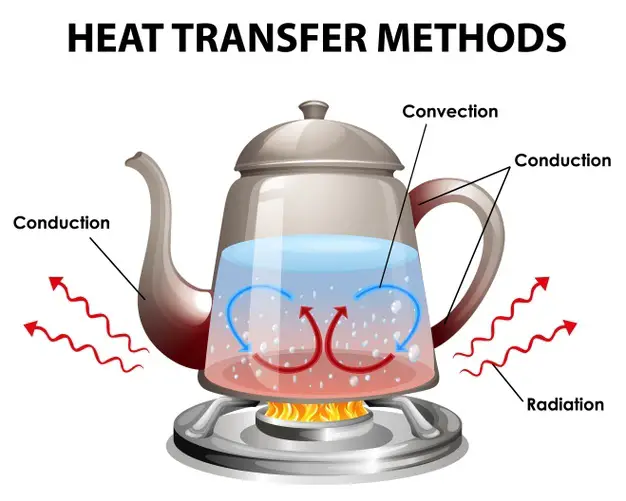TRANSFER OF THERMAL ENERGY

About Course
There are many phenomena in real life, which involve transfer of thermal EnergyEnergy is the property of matter and radiation which is mani..... Keeping our buildings or houses in comfortable conditions, especially in terms of temperature in winter and in summer requires knowledge of how heat travels if it is to be done economically and efficiently. It is in this regards that, this course will explore three main ways of heat transfer in different states of matter and how they may be harnessed to our benefit.

Specific outcomes
- Explain methods of heat transfer.
- Use kinetic theory to explain heat transfer.
- Demonstrate heat conduction in different substances.
- Demonstrate convection in liquids and gases.
- Explain every day’s applications of knowledge on convection.
- Demonstrate the uses of bad and good conductors of heat.
- Explain every day’s applications of knowledge on conduction.
- Demonstrate the differences between bad and good absorbers of radiant energyEnergy is the property of matter and radiation which is mani...
- Demonstrate the differences between good and bad heat emitters.
- Explain every day’s applications of knowledge on radiation.
CONTENT
The flow of heat through a materialMaterial or Matter is anything which has mass and occupies s... by transferring heat from particle to particle without changing their positions is called conduction. Those materials through which heat flows well are called heat conductors while those through which heat flows very weakly are called heat insulators.
Liquids and gases expand when the temperature increases. Then the particles in hot liquids and gases rise due to the decrease of their densities, resulting the particles above which are denser running down. This process of heat transference is known as convection.
Heat is emitted as infrared radiation from hot objects. It travels with the same speed as that of light. A medium is not necessary to propagate these heat radiations. The heat transference from the Sun to the Earth also occurs as the infrared radiation.
- Heat transfer methods: Conduction, convection and radiation
- Relationship between kinetic theory and heat transfer
- Heat conduction in different substances
- Uses of conductors: Good conductors; pans, kettle, pots etc.;
- Bad conductors: plastic handles, wooden handles etc.
- Heat transfer in fluids through Convection current
- Application of knowledge on the processes of heat transfer: e.g. electric kettle, land and sea breeze.
- Differences between good and bad absorbers of heat: e.g. shiny (white or silver) and dull(black) surfaces
- Differences between good and bad emitters of heat such as shinning (white or silver) and dull (black surfaces)
- Application of knowledge on the processes of heat transfer: e.g. thermos flask, greenhouse effect
Course Content
CONDUCTION
-
Conduction
00:00
Convection in Fluids
Radiation of Thermal Energy
Student Ratings & Reviews
